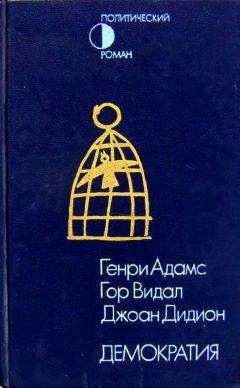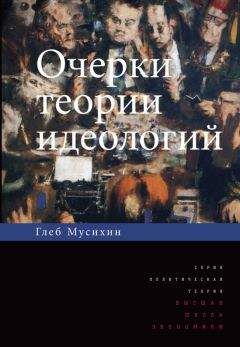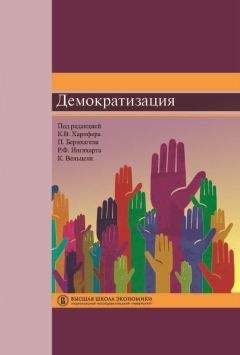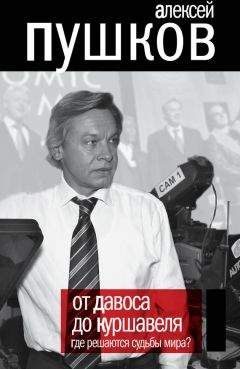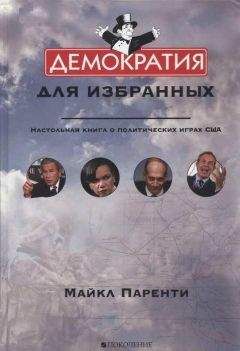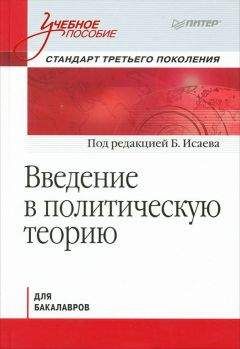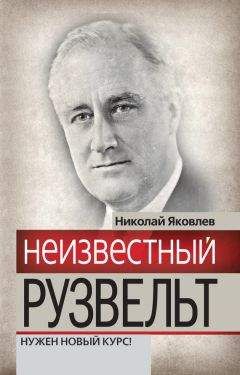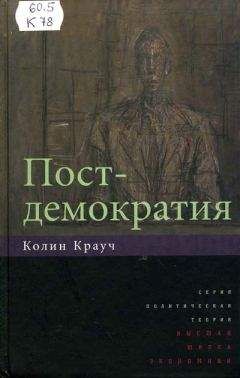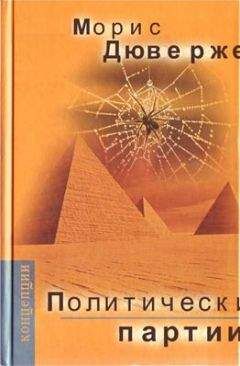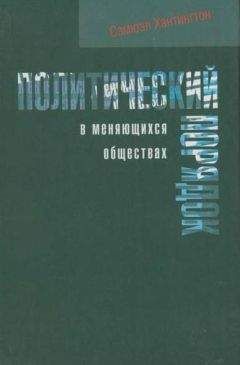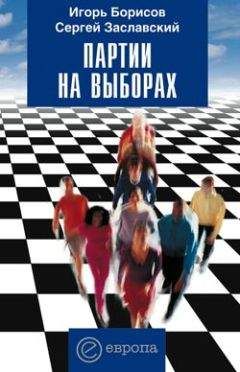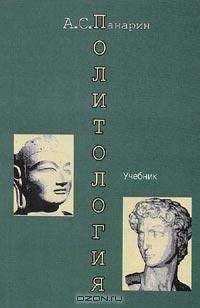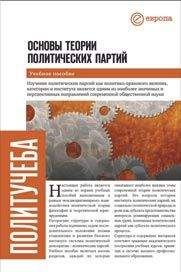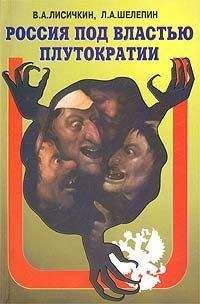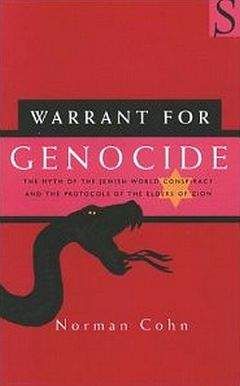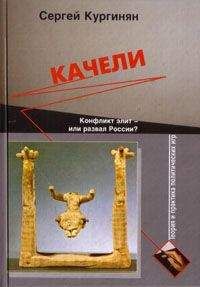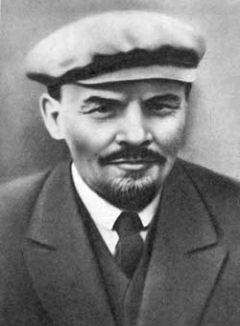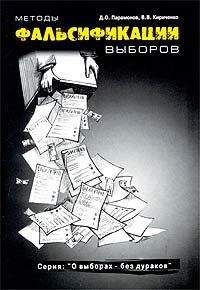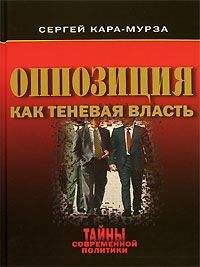Чарльз Эндрейн - Сравнительный анализ политических систем
Скачивание начинается... Если скачивание не началось автоматически, пожалуйста нажмите на эту ссылку.
Жалоба
Напишите нам, и мы в срочном порядке примем меры.
Описание книги "Сравнительный анализ политических систем"
Описание и краткое содержание "Сравнительный анализ политических систем" читать бесплатно онлайн.
Когда мы смотрим на политическую карту мира, то вряд ли нам приходит в голову мысль провести скрупулезный анализ всего многообразия существующих на Земле политических систем. Эту сложную, но выполнимую задачу поставил в своей книге профессор Ч. Эндрейн. Он не только сравнил различные политические системы, выявил общее и особенное в их функционировании, но и рассмотрел роль элит, групп и отдельных индивидуумов в проведении политического курса. Книга, пользующаяся большой популярностью в странах Запада, ныне станет доступна и нашему читателю, постоянно ощущающему потребность в учебной литературе по политическим наукам. Ее издание рекомендовано Российской ассоциацией политических наук.
Издание осуществлено при содействии Отдела по вопросам печати и культуры Посольства США
131
Charles F. Andrain, Political Change in the Third World (Boston: Unwin Hyman, 1988), 100–113; James Elliott, «The Future of Socialism; Vietnam, the Way Ahead?» Third World Quarterly 13, no. 1 (1992): 131–42; Gareth Porter, «The Politics of 'Renovation' in Vietnam», Problems of Communism 39 (May–June 1990): 72—88; Douglas Pike, «Change and Continuity in Vietnam», Current History 89 (March 1990): 117—20, 132–34; Douglas Pike, «Vietnam in 1991: The Turning Point», Asian Survey 32 (January 1992): 74—80; Dorothy R. Avery, «Vietnam in 1992: Win Some, Lose Some», Asian Survey 33 (January 1993): 67—74; Ronald J. Cima, «Peasants and Regime in Vietnam: Perspectives on Transition», Problems of Communism 39 (November December 1990): 90—95; Per Ronnas and Orjan Sjoberg, «Economic Reform in Vietnam: Dismantling the Centrally Planned Economy», Journal of Communist Studies I (March 1991): 7—19; «Vietnam Seeing a Foreign Rush for Its Property», Los Angeles Times, April 6, 1992, p. D3; Kai M. Schellhorn, «Political and Economic Reforms in Vietnam», Contemporary Southeast Asia 14 (December 1992): 231—43; Hoang Ngoc Nguyen, «The Scope and Prospects of Foreign Investment in Vietnam», Contemporary Southeast Asia 14 (December 1992): 244—56; Melanie Beresford and Lyn Fraser, «Political Economy of the Environment in Vietnam», Journal of Contemporary Asia 22, no. I (1992): 3–19.
132
Цит по: Wei–Chin Lee, «Iron and Nail», 133.
133
Charles H. Kennedy and David J. Louscher, «Civil–Military Interaction: Data in Search of a Theory», Journal of Asian and African Studies 26 (January–April 1991): 1 — 10; S. E. Finer, The Man on Horseback: The Role of the Military in Politics, 2d enlarged ed» revised and updated (Boulder, CO: Westview Press, 1988), 223–306; S. E. Finer, «The Retreat to the Barracks: Notes on the Practice and the Theory of Military Withdrawal from the Seats of Power», Third World Quarterly 1 (January 1985): 16–30; Eric A. Nordlinger, Soldiers in Politics: Militaiy Coups and Governments (Englewood Cliffs, NJ: Prentice–Hall, 1977); Nicole Ball, «The Military in Politics: Who Benefits and How», World Developments (June 1981): 569–82; Rosemary H. T. O'Kane, «Military Regimes: Power and Force», European Journal of Political Research 17 (May 1989): 333—50; Rosemary H. T. O'Kane, «A Probabilistic Approach to the Causes of Coups d'Etat», British Journal of Political Science 11 (July 1981): 287–308; Edward N. Midler, «Dependent Economic Development, Aid Dependence on the United States, and Democratic Breakdown in the Third World», International Studies Quarterly 29 (December 1985): 445–69.
134
Youssef Cohen, «The Heresthetics of Coup Making», Comparative Political Studies 24 (October 1991): 344–64; Paul Cammack, «Brazil: The Long March to the New Republic», New Left Review, no. 190 (November–December 1991): 21–58; Andrain, Political Change in the Third World, 151–82; Brian Loveman, Chile: The Legacy of Hispanic Capitalism, 2d ed. (New York: Oxford University Press, 1988), 270—361; Luis E. Gonzalez, Political Structures and Democracy in Uruguay (Notre Dame, IN: University of Notre Dame Press, 1991), 1—52; Charles Guy Gillespie, Negotiating Democracy: Politicians and Generals in Uruguay (New York: Cambridge University Press, 1991), 26–49; Paul С Sondrol, «1984 Revisited? A Re–Examination of Uruguay's Military Dictatorship», Bulletin of Latin American Research 11 (May 1992): 187–203; Susan and Peter Calvert, Argentina: Political Culture and Instability (London: Macrnillan, 1989), esp. 59–162, 207–82; David Rock, Argentina 1516–1987: From Spanish Colonization to Alfonsin (Berkeley; University of California Press, 1987), 346–66; Carlos H. Waisman, «Counterrevolution and Staictural Change: The Case of Argentina», International Political Science Review 10 (April 1989): 159–74; Carlos Waisman, Reversal of Development in Argentina: Postwar Counterrevolutionary Policies and Their Structural Consequences (Princeton, NJ: Princeton University Press, 1987).
135
Charles S. Maier, In Search of Stability: Explorations in Historical Political Economy (New York: Cambridge University Press, 1987), 153–84; Bradley M. Richardson and Scott C. Flanagan, Politics in Japan (Boston: Little, Brown, 1984), 26–29; Bernard Eccleston, Slate and Society in Post–War Japan (Cambridge, England: Polity Press, 1989), 15–21; Barry Eichengreenand Marc Uzan, «The Marshall Plan», Economic Policy 7 (April 1992): 13–75.
136
Class Offe, «Capitalism by Democratic Design? Democratic Theory Facing the Triple Transition in East Central Europe», Social Research 58 (Winter 1991): 865–92; Francis Fukuyama, The End of History and the Last Man (New York: The Free Press, 1992), 42—51.»
137
Robert A. Dahl, «Governments and Political Oppositions», in Handbook of Political Science, vol. 3, ed. Fred I. Greenstein and Nelson W. Polsby (Reading, MA: Addison Wesley, 1975),'123–24.
138
Manuel Antonio Gaireton, «Problems of Democracy in Latin America: On the Processes of Transition and Consolidation», International Journal 43 (Summer 1988): 357—77; James S. Coleman, Foundations of Social Theory (Cambridge, MA: Belknap Press of Harvard University Press, 1990), 489–502; David E. Apter, «Institutionalism Reconsidered», International Social Science Journal 43 (August 1991); 463—81; Gary Marks, «Rational Sources of Chaos in Democratic Transition», American Behavioral Scientist 35 (March–June 1992): 397–421.
139
Stephen White, John Gardner, George Schopflin, and Tony Saich, Communist and Postcommunisi Political Systems: An Introduction, 3d ed.(New York: St. Martin's Press, 1990), 4—6; Ken Jowitt, New World Disorder: The Leninist Extinction (Berkeley: University of California Press, 1992), esp. 3–49; Barttomiej Kaminski, The Collapse of State Socialism: The Case of Poland (Princeton, NJ: Princeton University Press, 1991); Grzegorz Ekiert, «Democratization Processes in East Central Europe: A Theoretical Reconsideration», British Journal of Political Science 21 (July 1991): 285–313; John Higley and Jan Pakulski, «Revolution and Elite Transformation in Eastern Europe», Australian Journal of Political Science 27 (March 1992): 104–19; Jan Pakulski, «Eastern Europe and 'Legitimacy Crisis,'» Australian Journal of Political Science 25 (November 1990): 272–88; Krishan Kumar, «The Revolutions of 1989: Socialism, Capitalism, and Democracy», Theory and Society 21 (June 1992): 309—56; Bogdan Denitch, «The Crisis and Upheaval in Eastern Europe», Social TextS, no. 2 (1990): 117—31; Shiomo Avineri, «Reflections on Eastern Europe», Partisan Review 58 (Summer 1991): 442—48; Ernest Mandel, «The Roots of the Present Crisis in the Soviet Economy», in Socialist Register 1991, ed. Ralph Miliband and Leo Panitch (London: Merlin Press, 1991), 194–210; Paul R. Gregory, «The Impact of Perestroika on the Soviet Planned Economy: Results of a Survey of Moscow Economic Officials», Soviet Studies 43, no. 5 (1991): 859—73.
140
William E. Odom, «Alternative Perspectives on the August Coup», Problems of Communism 40 (November–December 1991): 13—19; William E. Odom, «The Soviet Military in Transition», Problems of Communism 39 (May–June 1990): 51–71; Jerry F. Hough, «Assessing the Coup», Current History 90 (October 1991): 305–10; Roy Medvedev, «Politics after the Coup», New Left Review, no. 189 (September–October 1991): 91–109; Ronald Suny, «Incomplete Revolution: National Movements and the Collapse of the Soviet Empire», New Left Review, no. 189 (September–October 1991): 111—25; David S. Mason, Daniel N. Nelson, and Bogdan M. Szklarski, «Apathy and the Birth of Democracy: The Polish Struggle», East European Politics and Societies 5 (Spring 1991): 205–33; David S. Mason, «Solidarity as a New Social Movement», Political Science Quarterly 104 (Spring 1989): 41–58; Roman Laba, «Worker Roots of Solidarity», Problems of Communism 35 (July–August 1986): 47—67; David J. Ost, «Indispensable Ambiguity: Solidarity's Internal Authority Structure», Studies in Comparative Communism 21 (Summer 1988): 189–201; W.G.Runciman, «Contradictions of State Socialism: The Case of Poland», Sociological Review 33 (February 1985): 1—21; Z. A. Pelczynski, «Stalemate and After in Poland.» New Society 55 (February 5,1981): 232—33; Paul G. Lewis, «The Long Goodbye: Party Rule and Political Change in Poland since Martial Law», Journal of Communist Studies 6 (March 1990): 24—48; Antoni Sulek, «The Polish United Workers' Parly: From Mobilisation to Non–Representation», Soviet Studies 42 (July 1990): 499–511; Christine M. Sadowski, «Resource Mobilization in a Marxist–Leninist Society: The Case of Poland's Solidarity Movement», Journal of Communist Studies 4 (June 1988): 181—202; Barbara A. Misztal and Bronislaw Misztal, «The State's Capacity to Change: The Case of Poland and the Philippines», Lntenwtional Journal of Comparative Sociology 27 (September–December 1986): 141—60; Zvi Gitelman, «The Limits of Organization and Enthusiasm: The Double Failure of the Solidarity Movement and the Polish United Workers' Party», in When Parties Fail: Emerging Alternative Organizations, ed. Kay Lawson and Peter H. Merki (Princeton, NJ: Princeton University Press, 1988), 421—46; Jack Bielasiak, «Inequalities and the Politicization of the Polish Working Class», in Communist Politics: A Reader, ed. Stephen White and Daniel Nelson (New York: New York University Press, 1986), 260–79; George Kolankiewicz, «Poland and the Politics of Permissible Pluralism», Eastern European Politics and Societies 2 (Winter 1988): 153—83; Valerie Bunce, «Decline of a Regional Hegemon: The Gorbachev Regime and Reform in Eastern Europe», Eastern European Politics and Societies 3 (Spring 1989): 235—67; Fred Halliday, «The Ends of Cold War», New Left Review, no. 180 (March–April 1990): 5–23.
141
Said Amir Arjornand, «Plea for an Alternative View of Revolution», Contention 2 (Winter 1993): 171–83; Pakulski, «Eastern Europe and 'Legitimacy Crisis'», 272–88; Giuseppe di Palma, «Legitimation from the Top to Civil Society: Politico–Cultural Change in Eastern Europe», World Politics 44 (October 1991): 49–80; Daniel Chirot, «What Happened in Eastern Europe in 1989?» in The Crisis of Leninism and the Decline of the Left: The Revolutions of 1989, ed. Daniel Chirot (Seattle: University of Washington Press, 1991), 3—32; Janina Frentzel–Zagorska, «The Dominant Political Culture in Poland», Politics 20 (May 1985): 82–98; Marek Ziolkoswki, «Individuals and the Social System: Values, Perceptions, and Behavioral Strategies», Social Research 55 (Spring Summer 1988): 139—77; Ronald Ingelhart and Renata Siemienska, «Changing Values and Political Dissatisfaction in Poland and the West: A Comparative Analysis», Government and Opposition 23 (Autumn 1988): 440—57; Janina Frentzel–Zagorska, «The Dominant Political Culture in Poland», Politics 20 (May 1985): 82–98; Robert J. Shiller, Maxim Boycko, and Vladimir Korobov, «Popular Attitudes toward Free Markets: The Soviet Union and the United States Compared», American Economic Review 81 (June 1991): 385–400; Donald S. Kellermann, Andrew Kohut, and Carol Bowman, The Pulse of Europe: A Survey of Political and Social Values and Attitudes (Washington, DC: Times Mirror Center for the People and the Press, 1991), section IX, Questionnaire, 88—91.
142
Elizabeth Kiss, «Dem ocracy without Parties? 'Civil Society' in East–Central Europe», Dissent 39 (Spring 1992): 226—31; George Schopflin, «The End of Communism in Eastern Europe», International Affairs 66 (January 1990): 3–16; Andre Gunder Frank, «Revolution in Eastern Europe: Lessons for Democratic Social Movements (and Socialists?)», Third World Quarterly 12 (April 1990): 36–52; Herbert Kitschelt, «The Formation of Party Systems in East Central Europe», Politics and Society 20 (March 1992): 7—50; Steven Fish, «The Emergence of Independent Associations and the Transformation of Russian Political Society», Journal of Communist Studies 7 (September 1991): 299–314; Frederick Stair, «The Third Sector in the Second World», World Development 19 (January 1991): 65–71; David E. Powell, «The Revival of Religion», Current History 90 (October 1991): 328–32; Timur Kuran, «Now Out of Never: The Element of Surprise in the East European Revolution of 1989», World Politics 44 (October 1991): 7–48; Timur Kuran, «The East European Revolution of 1989: Is It Surprising that We Were Surprised?» American Economic Review 81 (May 1991): 120–25; Jeffrey W. Hahn, «Continuity and Change in Russian Political Culture», British Journal of Political Science 21 (October 1991): 393–421; David S. Mason and Svetlana Sydorenko, «Perestroyka, Social Justice, and Soviet Public Opinion», Problems of Communism 39 (November—December 1990): 34—43; Donald S. Kellermann, Andrew Kohut, and Carol Bowman, The Pulse of Europe: A Survey of Political and Social Values and Altitudes (Washington, DC: Times Mirror Center for the People and the Press, 1991), section VIII, Graphs, and section IX, Questionnaire, 28—45.
143
Подписывайтесь на наши страницы в социальных сетях.
Будьте в курсе последних книжных новинок, комментируйте, обсуждайте. Мы ждём Вас!
Похожие книги на "Сравнительный анализ политических систем"
Книги похожие на "Сравнительный анализ политических систем" читать онлайн или скачать бесплатно полные версии.
Мы рекомендуем Вам зарегистрироваться либо войти на сайт под своим именем.
Отзывы о "Чарльз Эндрейн - Сравнительный анализ политических систем"
Отзывы читателей о книге "Сравнительный анализ политических систем", комментарии и мнения людей о произведении.





